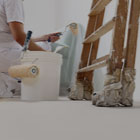-
AllAnytime Fitness Gym Art Blog Bus Fares Bus Service Business Business Expo C2C Care Care Home Charity Children Christmas Cinema City Status Cliffs Pavilion Cliffs Pavilion Review College Community Competition Construction Coronation Coronavirus Design Easter Education Electoral changes Leigh on sea Employment Emsella Chair Environment Essex & Suffolk Water News Essex Police Essex Wildlife Trust News Events Family Fun Fashion Festival Film Finance Fitness Food Food & Drink Foulness Bike Ride Fresh Face Pillow Company Gardening General Election Hair & Beauty Halloween Harp Havens Havens Hospice Havens Hospices Havens Hospices Health & Fitness Health & Beauty Health & Fitness Healthwatch Southend Historicaleigh History Holidays Housing Indian Indirock Jubilee Karen Harvey Conran Kids Kids Competitions Lazydays Festival Legal Leigh Art Trail Leigh Folk Festival Leigh Library Leigh Road Leigh Town Council Leigh Town Council Press Release Leigh on Sea Leigh on sea Folk Festival Leigh on sea Marathon Leigh on sea Town Council Leigh on sea man breaks marathon record Leigh on sea news Lifestyle Livewell Southend Press Release LoS Shop London Southend Airport Los Shop Marathon Mortgage Angel blog Mortgages Mughal Dynasty Music My Mortgage Angel MyLoS NHS News News Offers Palace Theatre Parenting Parking Pets Picture Of The Week Pier Politics Press Release Press Release Southend City Council Professional Property Property Of The Week RSPCA Ray Morgan Re:loved Recipes Recycling Restaurant Restaurant Review Restaurants Review Roads Rotary Club Royal Hotel Royal Visit SAVS Schools Seafront Shopping Shows & Music Review Shows & Music Shows & Music Review Southend Southend Airport Southend Borough Council Press Release Southend City Bid News Southend City Council Southend City Council Press Release Southend City Council Press Release Southend Community Safety Southend Hospital News Southend In Sight Southend In Sight Southend In Sight Press Release Southend on Sea Sport The One Love Project The Ship Hotel Theatre Theatre Blog Theatre Review Theatre review Transport Travel Travel Veolia Volunteer Weddings Whats On c2c
Face coverings should be worn in shops and supermarkets from this Friday

Face coverings are already mandatory in healthcare settings, GP surgeries, hospitals and on public transport. They are also recommended when sharing cars with those outside of your household, and when you find yourself unable to maintain a 2 metre distance indoors with others from outside your household.
To be effective, face coverings should:
- cover both your nose and mouth
- fit comfortably but securely against the side of the face
- be secured to the head with ties or ear loops
- include at least two layers of fabric, ideally three
- unless disposable, it should be able to be washed with other items of laundry according to fabric washing instructions and dried without causing the face covering to be damaged
Users should heed the following guidance when putting on and taking off face coverings:
- wash your hands thoroughly with soap and water for 20 seconds or use hand sanitiser before putting a face covering on and before removing a face covering
- avoid wearing face coverings on your neck or forehead
- avoid touching the part of the face covering in contact with your mouth and nose, as it could be contaminated with the virus
- change the face covering if it becomes damp or if you’ve touched it
- only handle the straps, ties or clips
- do not share with anyone else
- if single-use, dispose of it carefully in a residual waste bin and do not recycle
- if reusable, wash it in line with manufacturer’s instructions at the highest temperature appropriate for the fabric
- wash your hands thoroughly with soap and water for 20 seconds or use hand sanitiser once removed
Krishna Ramkhelawon, the council’s director of public health says: “Each and every one of us has a role to play in reducing the spread of the virus. This latest guidance on face coverings should ensure that community related transmission of the virus is further reduced.
“Coronavirus (COVID-19) is spread by droplets from coughs, sneezes and through speaking, shouting or singing. These droplets can also be picked up from surfaces, particularly if you touch a surface and then touch your face. This is why wearing a face covering is so important in controlling the spread of the virus.
“When used correctly, face coverings may reduce the spread of coronavirus droplets in certain circumstances. Because face coverings are mainly intended to protect others from coronavirus (COVID-19) they are not a replacement for social distancing and regular hand washing which remain as important as ever. However, if everyone wears a face covering in the settings identified, everyone is more protected, including yourself, and we can continue to reduce transmission rates. If you are not exempt, please remember to wear a face covering in shops and supermarkets from this Friday and continue to stay safe.”
Anyone experiencing coronavirus symptoms (high temperature, continuous cough or loss of or change in sense of smell or taste) should immediately stay at home, self-isolate with their household and visit www.nhs.uk/coronavirus or call 119 to find out how they can get tested.
Those who test positive for COVID-19 will be helped by the NHS test and trace service to identify the people they’ve recently been in contact with so they can be alerted.
People who have had close recent contact with someone with coronavirus must then self-isolate for 14 days, if they are advised to do so by the NHS test and trace service, to help contain the spread of infection.
For further information on face coverings, please visit www.southend.gov.uk/facecoverings
A list of exemptions is also available on GOV.UK
ADD A COMMENT
Note: If comment section is not showing please log in to Facebook in another browser tab and refresh.






















